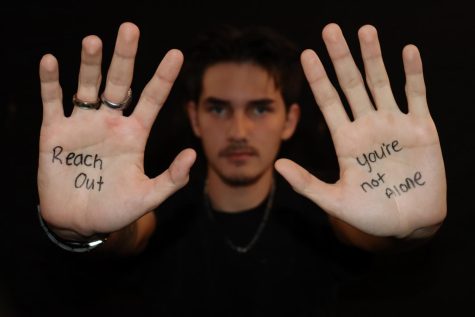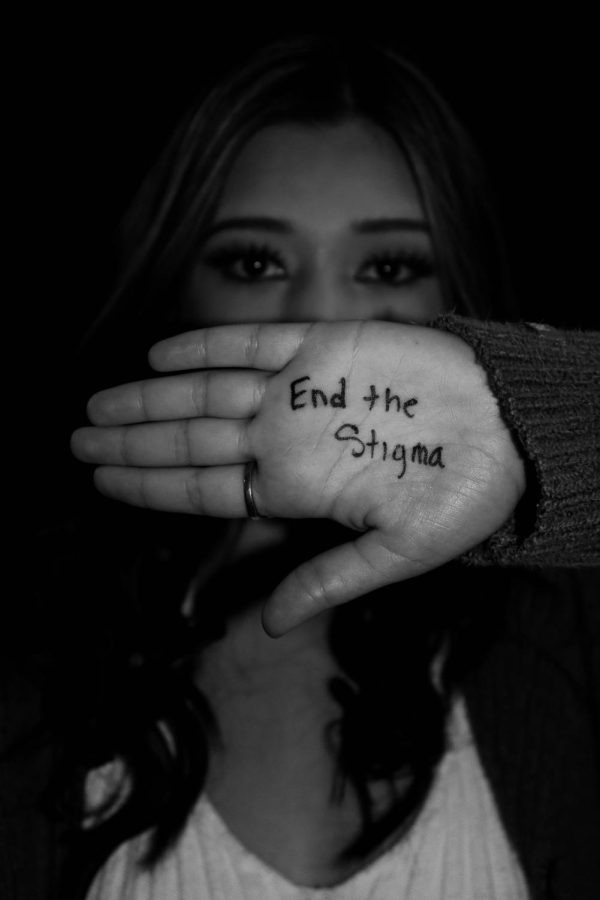End the stigma: Why we need to talk more about mental health
With no end in sight to the pandemic, students everywhere are continuing to face lockdowns, isolation and more importantly mental health difficulties. According to Time, suicide rates across the country are at an all-time high and are the third leading cause of death for those aged 15-24. The statistics surrounding collegiate students and their mental health are becoming alarmingly high.
A study conducted at the University of Pittsburgh found that nearly half of all college students around the country are at risk for developing clinical depression, which is a 36% increase from before the pandemic. And there is an overwhelming amount of studies that are yielding the same conclusions.
According to the Kaiser Family Foundation poll, 2 in 5 students reported symptoms of depression or anxiety, which rose from 1 in 10 from before the pandemic. Many individuals across the country are dealing with these issues and may not understand them or are not ready to acknowledge them. It is important that students everywhere realize that mental illness is not something to be ashamed of. The Healthy Minds Study in the fall of 2020 found that 38% of all undergraduate students suffer from moderate or severe depression and 34% deal with severe or moderate anxiety.
These aren’t the only issues that an overwhelming number of college students are facing.

Eating disorders are becoming increasingly common. According to Rae Jacobson of the Child Mind Institute, “Eating disorders develop when the need to feel control over a stressful environment is challenged through food restriction, over-exercise and an unhealthy focus on body weight.” Young college women are at the greatest risk for developing an ED, especially anorexia and bulimia. Currently, about 20% of women and 10% of men in college struggle with an eating disorder. Advanced eating disorders usually start between the ages of 18 and 21. Sometimes a disorder can develop from fixating on a diet, overusing laxatives, binging or purging. In these instances, it is important to intervene before it becomes too uncontrollable.
Simone Biles, Michael Phelps and Dak Prescott are just some of the many professional athletes that have broken the silence on mental health issues. Their advice and the advice of all professionals is to always seek help. Despite the loneliness that might be felt in times like these, there are always resources available.
Here at New Mexico State, the Aggie Health and Wellness Center provides excellent support for all students. Any Aggie can call the center and request an appointment with a therapist. After a screening process, a student can get paired with a therapist who can also request the aid of a doctor if medication is necessary. There might be copays for the medicine, but each full-time student can receive up to 12 free therapy sessions an academic year. Although this is the most popular service students use, the Wellness Center also offers group counseling, crisis services, behavioral health consultations, psychiatric evaluation and medication management.
Tara Wharem, Licensed Clinical Social Worker, Counselor and Mental Health Services Coordinator, said that there is an increasing number of students that are turning to the Wellness Center for services after the pandemic. Unfortunately, their data shows that more and more students are suffering from chronic mental illnesses, which sometimes can require lifelong aid. However, there are ways to battle mental health struggles. “It can be helpful to find people that you trust and feel comfortable talking to because a lot of times we don’t reach out because we feel like we are alone in this, ” Wharem said. “And when we don’t talk to someone, our brain equates that as like having a secret which can feel shameful. And so the more open you are about it, the more connection can lead to it not feeling as severe or isolating,” she finished.
People everywhere are struggling and sometimes it is not always visible from the outside. In times like these, it is crucial to be kind and considerate to those around you. Be the person those in need can turn to.

Juliana Trujillo is in her first year as Sports Editor and third year with Student Media. She graduates this year with a bachelors in Journalism and Media...

Emma Hood is starting her first year at The Round Up as a photographer. She is a sophomore majoring in studio art, specifically photography and graphic...


Harold A Maio • Jan 28, 2022 at 1:05 PM
We need to talk less about mental health stigma and a great deal more about those taught and teaching it.
We need to talk less about mental health stigma and a great deal more about those of us blithely accepting it, promulgating it.
Harold A Maio